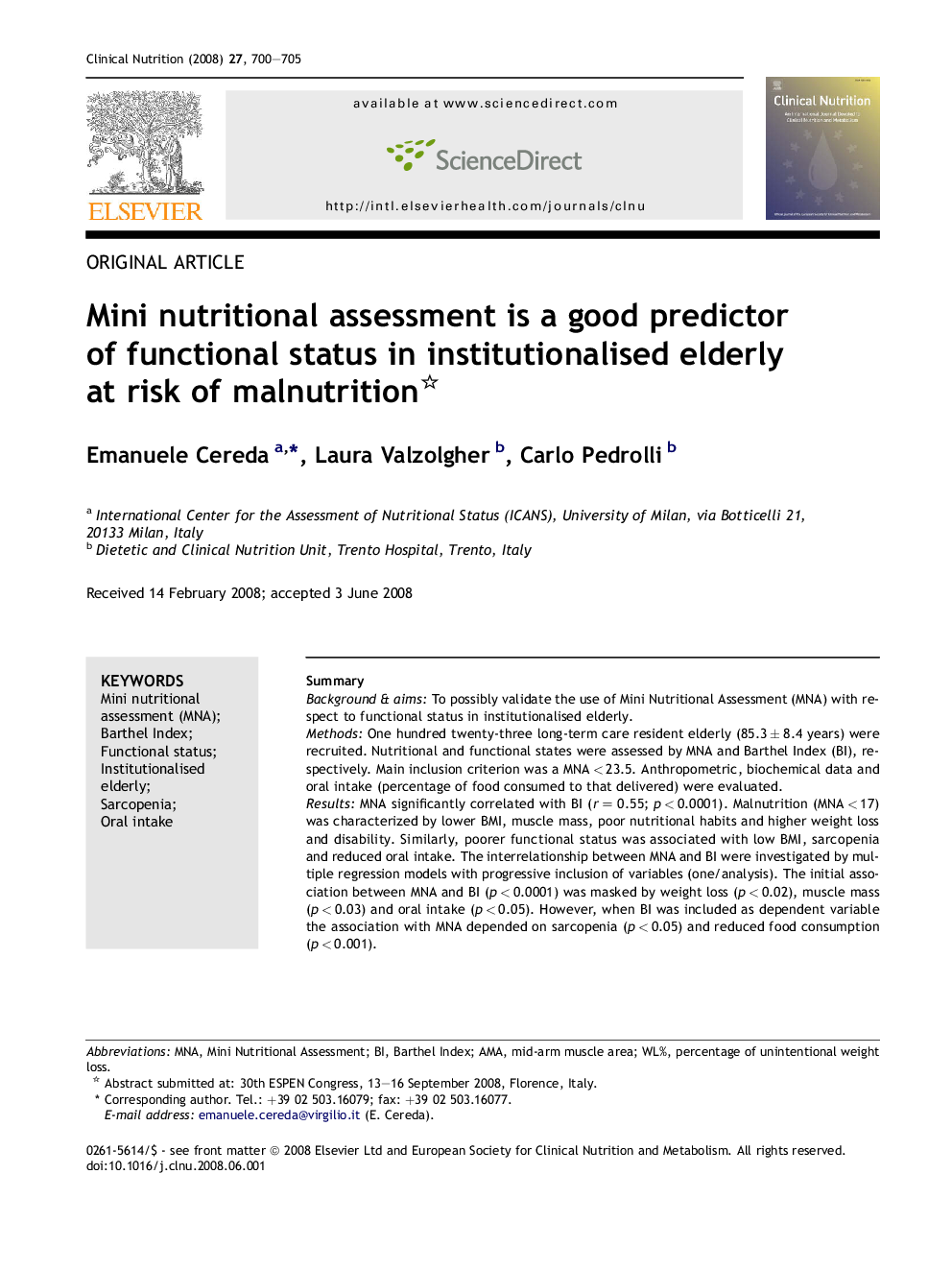| Article ID | Journal | Published Year | Pages | File Type |
|---|---|---|---|---|
| 2683327 | Clinical Nutrition | 2008 | 6 Pages |
SummaryBackground & aimsTo possibly validate the use of Mini Nutritional Assessment (MNA) with respect to functional status in institutionalised elderly.MethodsOne hundred twenty-three long-term care resident elderly (85.3 ± 8.4 years) were recruited. Nutritional and functional states were assessed by MNA and Barthel Index (BI), respectively. Main inclusion criterion was a MNA < 23.5. Anthropometric, biochemical data and oral intake (percentage of food consumed to that delivered) were evaluated.ResultsMNA significantly correlated with BI (r = 0.55; p < 0.0001). Malnutrition (MNA < 17) was characterized by lower BMI, muscle mass, poor nutritional habits and higher weight loss and disability. Similarly, poorer functional status was associated with low BMI, sarcopenia and reduced oral intake. The interrelationship between MNA and BI were investigated by multiple regression models with progressive inclusion of variables (one/analysis). The initial association between MNA and BI (p < 0.0001) was masked by weight loss (p < 0.02), muscle mass (p < 0.03) and oral intake (p < 0.05). However, when BI was included as dependent variable the association with MNA depended on sarcopenia (p < 0.05) and reduced food consumption (p < 0.001).ConclusionsMNA reliably identifies at-risk institutionalised elderly needing higher standards of care, particularly related to eating. Routine documentation of oral intakes and feeding assistance might be useful to prevent weight loss, sarcopenia and functional status deterioration.
